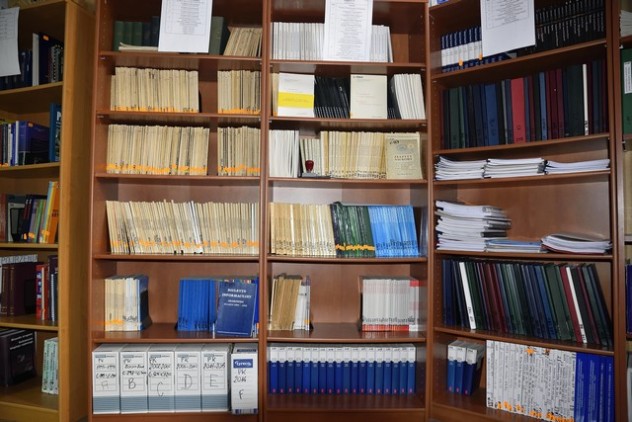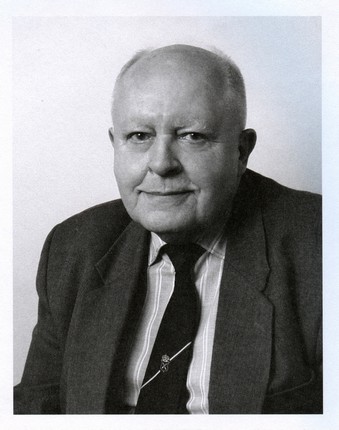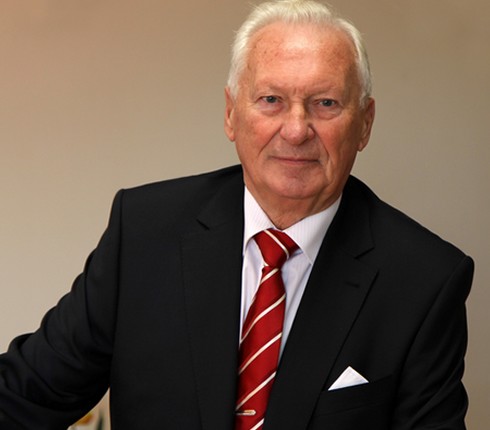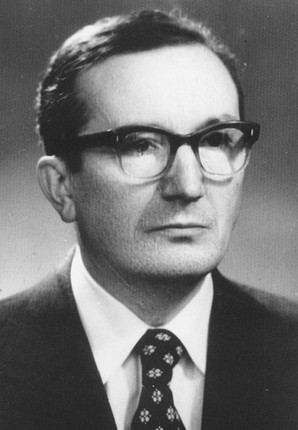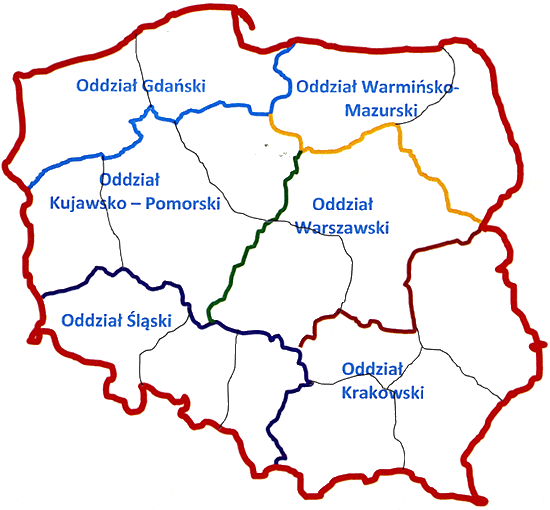Polish Forensic Association was registered into National Court Register on 1st August 1973 in Cracow, Poland. The main initiator of establishing the association was professor Brunon Holyst along with two other co-founders – prof. Tadeusz Hanausek and prof. Jan Markiewicz.
On 27th April 2004, the association gained status of an institution of public utility.
On 7th March 2004, Polish Forensic Association was appointed as a member of one of the Technical Committees for National Standards Body in Poland.
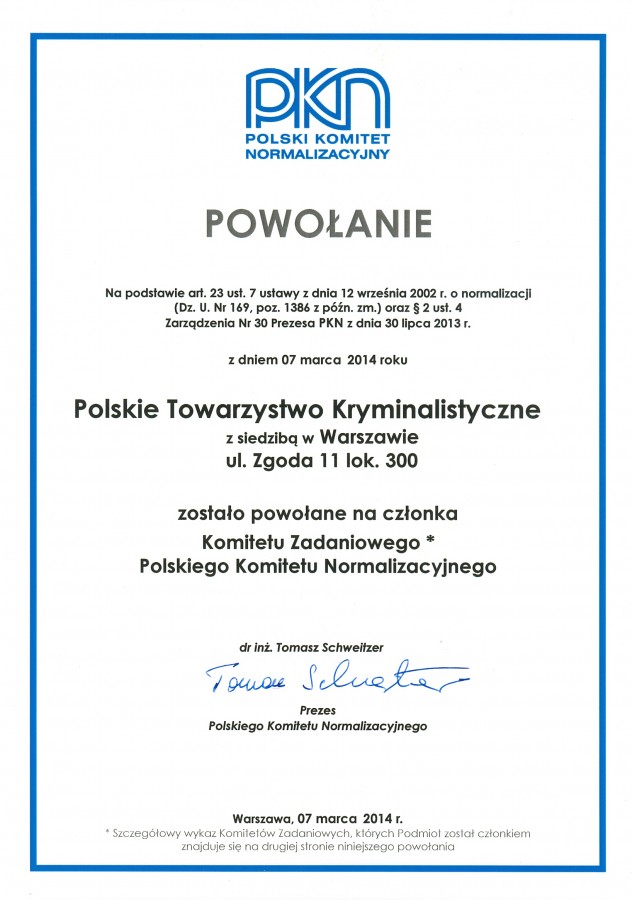
At the moment, the association’s staff consists of more than 600 people, organised in 6 local branches (Gdańsk branch – covering the area of Pomeranian and West-Pomeranian Voivodship, Kuyavian-Pomeranian branch – covering the area of Kuyavian-Pomeranian, Greater Poland and Lubuskie Voivodships, Silesian branch – covering the area of Lower Silesia, Silesia and Opole Voivodships, Warmia and Mazury branch – covering the area of Warmian-Masurian and Podlaskie Voivodships , Cracow branch covering the area of Lublin, Świętokrzyskie, Lesser Poland and Subcarpathian Voivodships and Warsaw branch covering the area of Łódź and Masovian Voivodships).
The chief authorities of Polish Forensic Association are Board of Directors and Scientific Council of PTK. Among them there are prominent representatives of Polish forensics, i.a.:
- prof. nadzw. dr hab. Bronisław Młodziejowski (president of Polish Forensic Association, director of the Criminalitics & Forensic Medicine Cathedral of University of Warmia and Mazury),
- prof. dr hab. Tadeusz Tomaszewski (chairman of the Scientific Council, vice-chancellor of the University of Warsaw),
- prof. dr hab. Janina Zięba-Palus (vice-chairwoman of the Scientific Council, director of the Criminalistic Department of the Forensic Research Institute in Cracow),
- prof. dr hab. Ewa Gruza (director of the Scientific Council, vice-doyen of Law and Administration Department of the University of Warsaw),
- prof. dr hab. Hubert Kołecki (director of the Scientific Council, former director of the Criminalistics Cathedral of the Adam Mickiewicz University),
- prof. dr hab. Tadeusz Widła (director of the Scientific Council, director of the Criminalistics Cathedral of the Silesian University),
- prof. dr hab. Maria Kała (consulting director of the Scientific Council, director of the Judicial Expertise Institute in Cracow),
- dr hab. prof. UR Mieczysław Goc (vice-president of Polish Forensic Association, former director of the Central Forensic Labolatory of the Police),
- dr Waldemar Krawczyk (director of the Scientific Council, director of the Central Forensic Labolatory of the Police) and many more.
In the structures of Polish Forensic Association (PTK) there’s a well-equipped forensic laboratory, performing with expertise in various fields of forensic science for judicial bodies, other institutions and private individuals. It currently has staff consisting of more than 130 experts with years of experience who mostly come from scientific backgrounds (they are mainly former experts of the Central Forensic Laboratory, police laboratories and also university researchers).
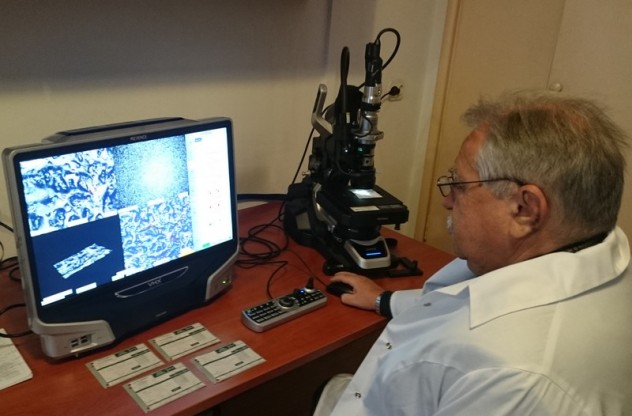
Since its beginning, Polish Forensic Association put a high input on popularising the knowledge and practice of forensic science, i.e. through regular publications devoted to the subject. For many years, under the editorship of prof. Bruno Holyst, PTK issued a periodical magazine “Social Pathology. Prevention.” and then “Forensics progress”. Since 2000, PTK, together with the Department of Criminology of the University of Warsaw, issues a periodical magazine called “Problems of Contemporary Criminalistics,” which is the main place for the presentation of scientific achievements of the Association and its members. A textbook “Traces of forensic science. Disclosure, protection, use.” was published under the patronage of PTK. There is a work underway to release the full Polish Bibliography of Forensics covering the period from the beginning of forensics in Poland until the present times. Until now there were three volumes issued describing about 19 thousand books about broadly understood forensic science from the years 1980-2008. Soon, there will be two volumes released covering the period 1918-1979, and then the next part of the bibliography covering the latest period will be published. In 2010 a book called “What’s new in forensics – overview of issues related to the fight against crime.” was issued. A monography written by M. Goc, T. Tomaszewski and R. Lewandowski “Criminology – the unity of science and practice – review of the issues of combating crime” is currently in preparation.
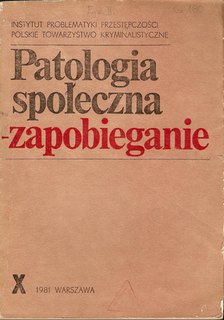
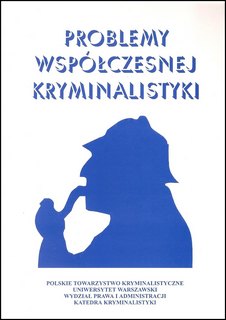
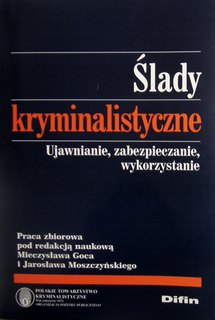

The Association participates in the implementation of scientific research. Together with the University of Warsaw two development projects have been completed and implemented to practice: project called “Scientific description of the methodology & programs and constructing a station for signatures identification research using computer graphometry” (GLOBALGRAF) and project called “Scientific description of the methodology and constructing a station for research of chronology of recordings made with different techniques and methods that fade on a paper” (Chronology). Currently, together with the University of Warsaw and the Central Forensic Laboratory of the Police, PTK participates in a research project No. GOOD-BIO4/038/13297/2013, “Measuring tools supporting the analysis of handwriting and signatures” funded by the National Research and Development Centre..
While trying to popularise forensic knowledge and to set standards for carrying out criminalistics surveys, the Polish Forensic Association offers a wide spectrum of trainings, directed to police officers, public prosecutors, bank and insurance companies’ employees, etc. A few thousands of people have already been trained.
The typical projects of the Polish Forensic Association are mainly lectures followed by a discussion, which are popular not only within a scientific environment but also within representatives of law enforcement authorities and other institutions.
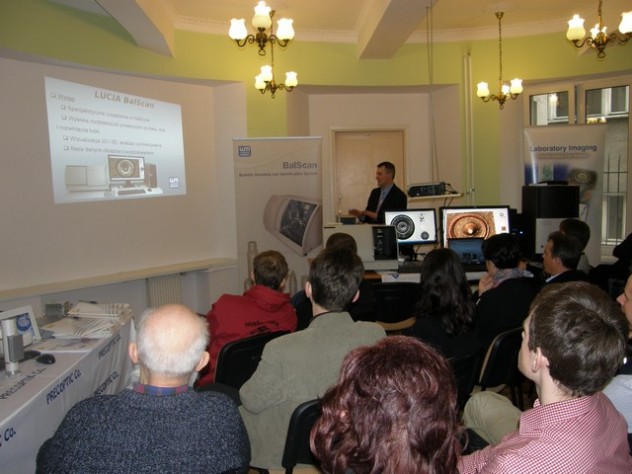
Polish Forensic Association actively promotes student scientific movement by providing substantive, organisational and financial help but also by participating, among others, in the implementation of many students’ projects at different Polish universities (University of Warsaw, Rzeszów University, Mikołaj Kopernik University, University of Gdańsk and others).
Regular projects of the Association are: symposiums, forensic workshops, student science camps for deepening theoretical and practical knowledge etc. Starting from 2000 it organises the prof. Tadeusz Hanausek Competition for the best dissertation of the year annually. Since 2008 it organises the Competition for the Professor Bruno Holyst Award for outstanding young criminalists.
An important element of Polish Forensic Association activity is to represent and act in the interest of the forensic community against various entities, authorities and institutions.
PTK participates in very important works on an act for experts’ environment – act of expert witnesses.
Ustawa o biegłych sądowych
Uzasadnienie Ustawy o biegłych sądowych
Legitymacje biegłych
Stanowisko PTK
Uwagi do projektu ustawy o biegłych prof. T.Widły

By the headquarters of Polish Forensic Association there’s a Criminalistic Library, initiated in 2005, which gathers industry entries and magazines supposed to develop the knowledge and meet the needs regarding widely understood criminalistics and penology. Library’s collection is highly popular among students from universities nationwide, who prepare their masters’ dissertations concerning the field of forensics. At the moment, the collection consists of more than 1300 bibliographic entries and a systematically updated listing can be found on the PTK’s website.
